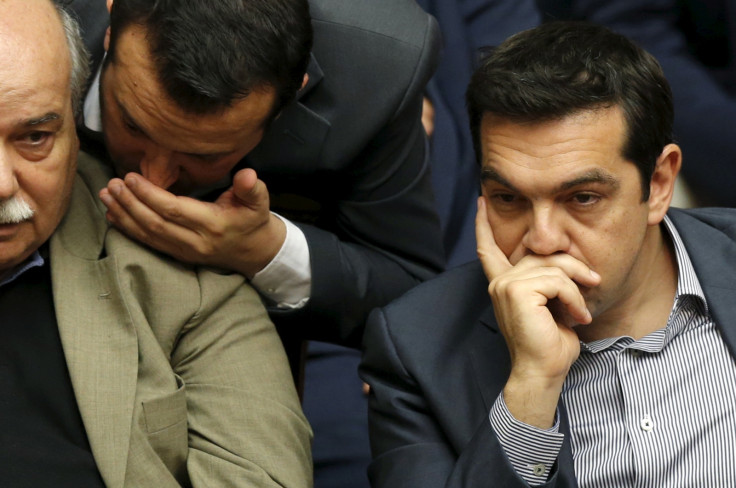Greece debt crisis: Future of EU at stake as Brussels talks continue

Eurozone ministers have warned debt-stricken Greece that its government would need to enact key reforms by 15 July in order to start negotiations for a third financial bailout and restore trust in its economy.
During emergency talks in Brussels on 12 July, finance ministers gave Athens several days to implement new laws paving the way to a possible debt-relief package.
Speaking on the same day, Greek Prime Minister Alexis Tsipras told reporters that "we can reach an agreement tonight if all parties want it," but a more cautious-sounding German Chancellor Angela Merkel ruled out an "agreement at any price."
Arriving in Brussels for a continuation of the 11 July meeting between 18 Eurozone ministers and Greek Finance Minister Euclid Tsakalotos, Merkel said Eurozone leaders would need to consider whether "the conditions are met" to start negotiating a third bailout.
"The most important currency has been lost and that is trust," she told reporters. "That means that we will have tough discussions and there will be no agreement at any price."
"We have to make sure the pros outweigh the cons - for Greece's future, for the entire eurozone and the principles of our collaboration," she said.
Speaking at a press conference the same day, Finnish Finance Minister Alex Stubb said Greece would be expected to introduce labour, pensions and taxes reforms, including tough measures on privatisation and privatisation funds.
Also on 12 July, France dismissed the idea that Germany was poised to propose a plan allowing Greece to exit the eurozone temporarily if this weekend's talks fail.
"There is no temporary Grexit, there is a Grexit or there is not a Grexit," said French President Francois Hollande, adding that France would "do everything to find a deal tonight, allowing Greece, if the conditions are met, to remain in the eurozone and allowing Europe to progress".
On 11 July, marathon talks between the 19 representatives dragged on for over eight hours before adjourning at midnight, with officials struggling to make headway towards agreeing on a package worth up to €74bn (£53.2m, $82.5bn) for Athens.
Greece has proposed €13bn (£9.3m) of cuts to the country's budget in return for a three-year bailout deal, but Eurozone ministers are demanding further austerity measures.
Without a deal to rescue it from financial ruin, the country could crash out of the eurozone.
The unprecedented financial crisis prompted European Parliament head Martin Schulz to remark: "I really cannot remember, in all my time in European politics, whether I have come across a situation like this.
"This is really all about the European Union. If the EU is going to have any credible force, it is going to have to demonstrate it is capable of solving its own problems," he told a Brussels press conference on 12 July.
© Copyright IBTimes 2025. All rights reserved.



















